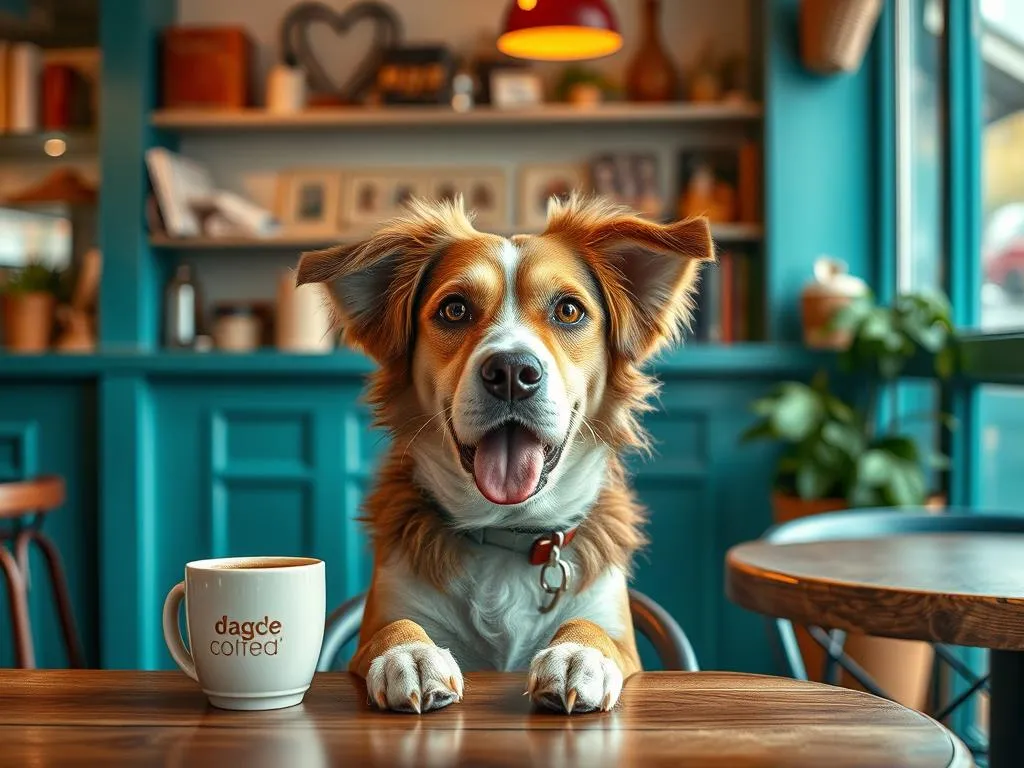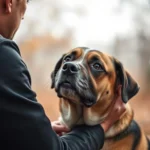
The trend of dog cafes has exploded in popularity over the last few years, with these unique establishments popping up in cities around the world. They offer a delightful space where dog lovers can enjoy a cup of coffee while their furry friends socialize and play. But the question remains: are dog cafes good for dogs? This article will explore the various aspects of dog cafes, including their benefits and potential drawbacks, to help owners make informed decisions about visiting such venues.
Understanding Dog Cafes
Definition and Concept
So, what exactly is a dog cafe? A dog cafe is a specialized establishment that allows customers to bring their dogs along while enjoying food and beverages. These cafes often feature dog-friendly menus, play areas, and a relaxed atmosphere where dogs can roam freely. Unlike regular cafes, dog cafes cater specifically to dog owners, creating a unique environment that encourages interaction between dogs and humans.
Popularity and Growth
The rise of dog cafes is remarkable, with a significant increase in their number globally. According to recent statistics, there has been a reported growth of over 50% in dog cafes in major cities over the last five years. Factors contributing to this trend include the growing pet ownership rates and the influence of social media, where sharing cute photos of dogs in cafes has become a popular pastime. This cultural shift towards valuing pet companionship has paved the way for establishments that cater to both human and canine customers.
Benefits of Dog Cafes for Dogs
Socialization Opportunities
One of the primary advantages of dog cafes is the opportunity they provide for dogs to socialize. Socialization is crucial for a dog’s development and overall well-being. It helps them learn how to interact with other dogs and humans, reducing anxiety and promoting friendly behavior. Dog cafes facilitate these interactions by allowing multiple dogs to gather in a safe environment, where they can play, sniff, and engage with one another.
Mental Stimulation
Mental stimulation is essential for dogs, just as it is for humans. Engaging with different scents, sounds, and sights at a dog cafe can provide a rich sensory experience for dogs. Many cafes offer toys and activities that promote cognitive engagement, such as puzzle toys and treat-dispensing games. This kind of mental exercise can help prevent boredom and reduce destructive behaviors that often result from lack of stimulation.
Physical Activity
Dog cafes often feature designated play areas where dogs can run, jump, and engage in playful activities. This physical activity is vital for maintaining a dog’s health and fitness. While at home, dogs may not have as many opportunities to exercise, especially if they are alone during the day. In contrast, dog cafes provide a space for dogs to burn off energy, leading to happier and healthier pets. Furthermore, some cafes even offer agility courses, providing an additional outlet for physical activity.
Considerations for Dog Owners
Dog Behavior and Temperament
Before visiting a dog cafe, it’s crucial for owners to assess whether their dog is suited for such an environment. Some dogs may thrive in social settings, while others may feel overwhelmed or anxious. Signs that a dog may not be ready for a cafe include excessive barking, hiding, or displaying aggressive behavior. It’s essential for owners to recognize these signs and determine if a dog cafe is the right choice for their furry friend.
Health and Safety Concerns
Health and safety should always be a priority. Many dog cafes require proof of vaccinations to ensure the safety of all dogs present. Owners should also be aware of potential risks, such as dog fights or exposure to illnesses like kennel cough. It is advisable for owners to closely supervise their dogs and ensure they are up to date on vaccinations before visiting a dog cafe.
Rules and Etiquette
Dog cafes typically have a set of rules and etiquette to ensure a positive experience for all patrons. Common rules include leash requirements, supervision of dogs at all times, and proper clean-up after pets. Owners should familiarize themselves with these guidelines to help maintain a friendly and safe environment for everyone. Practicing good etiquette, such as asking permission before allowing dogs to greet one another, can go a long way in ensuring a pleasant experience.
Finding the Right Dog Cafe
Key Features to Look For
Not all dog cafes are created equal. When searching for a suitable dog cafe, it’s essential to assess the environment. Look for cleanliness, adequate space for dogs to play, and amenities such as water stations and dog-friendly treats. Additionally, the presence of trained staff is crucial; they can help supervise interactions and ensure a safe atmosphere for all dogs and their owners.
Reviews and Recommendations
Customer reviews can provide valuable insights into the quality of a dog cafe. Reading experiences from other dog owners can help identify which cafes are well-regarded and which may have issues. Online platforms and social media are excellent resources for finding reliable recommendations. It’s always a good idea to visit a cafe first to observe the environment and determine if it feels welcoming and safe for your dog.
Alternative Options for Dog Socialization
Dog Parks
While dog cafes offer a unique experience, they are not the only option for socialization. Dog parks are another popular venue for dogs to interact and play. They typically provide an open space where dogs can roam off-leash and engage in various activities. However, dog parks can come with their own set of pros and cons.
Pros of Dog Parks:
– Larger space for dogs to run and explore.
– Opportunity for more dogs to gather, promoting socialization.
– Often free of charge.
Cons of Dog Parks:
– Less supervision, which can lead to potential conflicts.
– Variability in the behavior of other dogs, which may pose risks.
– Limited amenities compared to dog cafes.
Organized Dog Events
Another alternative for dog socialization is organized dog events, such as meetups or dog shows. These gatherings often focus on specific breeds or themes and can provide structured opportunities for dogs to interact. They may include activities such as agility competitions or fun runs, which can be excellent for both physical and mental stimulation.
Participating in organized events can also foster a sense of community among dog owners, allowing them to share experiences and tips for caring for their pets.
Conclusion
In summary, dog cafes offer a range of benefits for dogs, including socialization opportunities, mental stimulation, and physical activity. However, it is essential for owners to consider their dog’s behavior and temperament, as well as health and safety concerns before visiting. By understanding the environment and adhering to cafe rules, dog owners can ensure a positive experience for themselves and their dogs.
Ultimately, while dog cafes can be a fantastic option for socialization and enjoyment, they should be approached with care and consideration. Exploring local dog cafes responsibly can lead to enriching experiences for both dogs and their owners, fostering a deeper bond and understanding of their furry companions.









